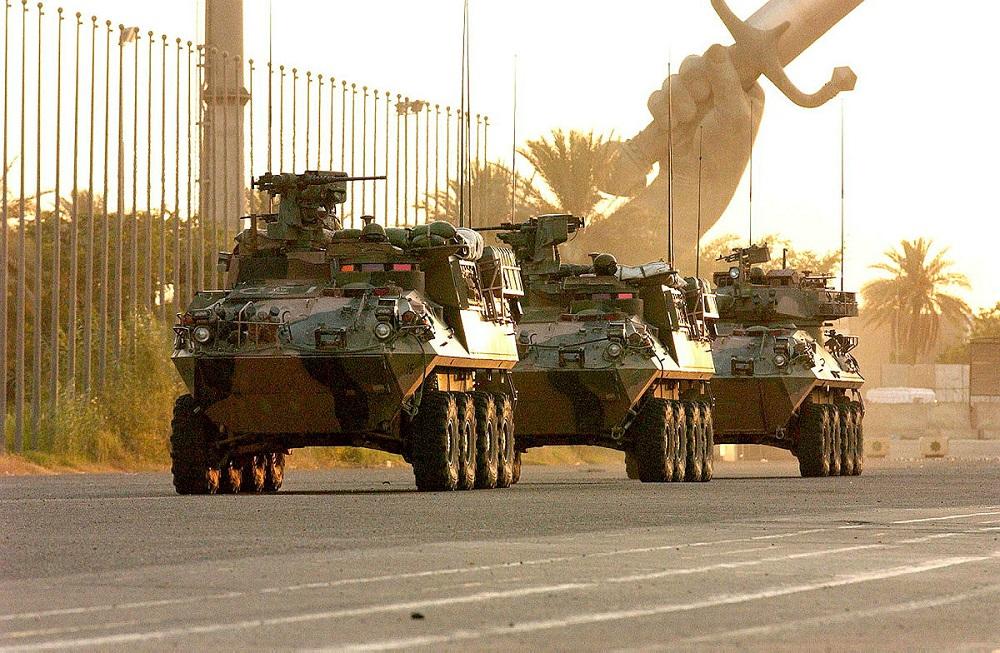The Flood report and the building of Australia’s intelligence community
Posted By Chris Taylor on August 2, 2023 @ 06:00

As I noted on the recent 20th anniversary [1], the Iraq war, and more particularly the intelligence failure in relation to Iraqi weapons of mass destruction, initiated an inquiry the following year, conducted for the Australian government by Philip Flood, a former director-general of the Office of National Assessments (ONA).
Research from ASPI’s statecraft and intelligence program, released today [2], finds that Flood’s 2004 report was an inflection point between the Australian intelligence community of the past—that is, in the immediate post–Cold War period—and today’s national intelligence community (NIC).
Flood set the institutional direction for what would become the NIC, most notably the future role for ONA—now the Office of National Intelligence (ONI). His recommendations also expanded resourcing for Australian intelligence, hitherto a niche (or, less politely, marginally relevant) contributor to statecraft, and drew what would become sustained government support for developing sovereign Australian intelligence capabilities.
Rereading Flood’s report [3] in 2023, one is struck by his insightfulness and the enduring relevance of his observations on the business of intelligence. Flood was plain about the need for Australia to be a ‘global leader’ on intelligence in Southeast Asia and the Pacific, ‘exceptionally good’ on intelligence in Northeast Asia, and ‘very good’ on South Asia. He didn’t, however, foresee the degree to which agencies would need to trim their approaches to those core missions to meet imperatives in countering terrorism, combating people smuggling and providing support to military operations.
At the level of first principles, Flood’s candid description of the functionality of intelligence to Australian governments deserves full quotation, and is equally applicable to the conduct of statecraft today:
The ways in which intelligence can serve government are wide-ranging and fluid. Some enduring features, however, are clear. Intelligence can, in conjunction with other sources, provide:
– warning, notably of terrorist plans, but also of potential conflicts, uprisings and coups
– understanding of the regional and international environment, with which Australian decision-makers will need to grapple
– knowledge of the military capabilities and intentions of potential adversaries, a vital ingredient in defence procurement and preparedness
– support for military operations, minimising casualties and improving the environment for operational success
– support for an active and ambitious foreign, trade and defence policy. Intelligence can provide vital clues about the intentions of others (e.g. military plans) and the ambitions of adversaries (e.g. negotiating positions in political or trade disputes)
– and beyond these vital roles of intelligence in providing information, modern intelligence can be a more active tool of government—disrupting the plans of adversaries, influencing the policies of key foreign actors and contributing to modern electronic warfare.
Flood laid out an ambitious vision for Australian intelligence. He engaged with the (for some, discomfiting) reality of the need for Australia to have its own robust intelligence capabilities above and beyond the access provided by allies, despite the more typically low profile of intelligence in Australian governments—and a past temptation to lean on those same allies.
The scope of his review extended beyond ‘recent intelligence lessons’—Iraq’s WMD, the 2002 Bali bombings and the unrest that led to 2003’s Regional Assistance Mission to Solomon Islands—to the effectiveness of oversight and accountability of the intelligence community (including priority-setting), ‘division of labour’ between agencies and their communications with each other, maintenance of contestability in intelligence assessments, and adequacy of resourcing (especially for ONA).
It was in addressing these matters that Flood laid the foundation for the future NIC, upon which would be constructed the reforms instituted by the recommendations of the later L’Estrange–Merchant review [4].
Importantly, Flood’s recommendations significantly enhanced ONA’s capabilities—not just analytical resources but also the resources (and tasking) needed to address the more effective coordination and evaluation of foreign intelligence across agencies. This was a critical step towards the more structured and institutionalised (if sometimes bureaucratic) NIC of today and an enhanced community leadership role for, ultimately, ONI.
It was also Flood’s very important innovation to recommend that there be regularised five- to seven-year intelligence reviews, rather than ad hoc responses to public or political disquiet about intelligence agencies (as in 1974, 1983, 1994 and 2004).
In addition, the Flood report identified issues that remain pertinent and challenging today.
Notably, Flood argued for more investment in diplomatic reporting (with its positive impact on intelligence for both producers and consumers). He highlighted a 38% decline in diplomatic staff overseas—and thus their reporting—between 1990 and 2003. Turns out it wasn’t just intelligence that was a victim of Australia’s post–Cold War holiday from history. Efforts are ongoing [5] to rebuild this diplomatic deficit.
There’s similar contemporary resonance in Flood’s engagement with the long-vexed issue of the public presentation of intelligence—a matter that had been at the heart of the Iraq WMD intelligence failure. This remains a highly relevant question for governments today, as reflected in the attempts by Western governments to deter last year’s Russian invasion of Ukraine by publicly releasing intelligence indicating knowledge of Russian intentions.
There’s also continued relevance in Flood’s treatment of cross-community issues, such as:
- the central importance of the intelligence community’s people—including training, career management, the perennial issue of where the people are going to come from, and language proficiency
- the challenge of intelligence distribution—including avoiding overloading time-poor customers
- maximising collaborative opportunities between agencies
- leveraging intelligence relationships—including the broadening of relations beyond traditional allied partners.
Those themes remain familiar today and will be pertinent to a future intelligence review.
Article printed from The Strategist: https://aspistrategist.ru
URL to article: /the-flood-report-and-the-building-of-australias-intelligence-community/
URLs in this post:
[1] on the recent 20th anniversary: /revisiting-the-flood-report-on-the-anniversary-of-the-iraq-war/
[2] released today: https://www.aspistrategist.ru/report/inflection-point-australian-intelligence-revisiting-2004-flood-report
[3] Flood’s report: /irp.fas.org/world/australia/flood.pdf
[4] recommendations of the later L’Estrange–Merchant review: https://www.aspistrategist.ru/report/informing-australias-next-independent-intelligence-review-learning-past
[5] are ongoing: https://theconversation.com/after-years-of-decline-the-budget-gives-more-money-for-diplomacy-and-development-capability-what-does-this-mean-in-practice-205224
Click here to print.